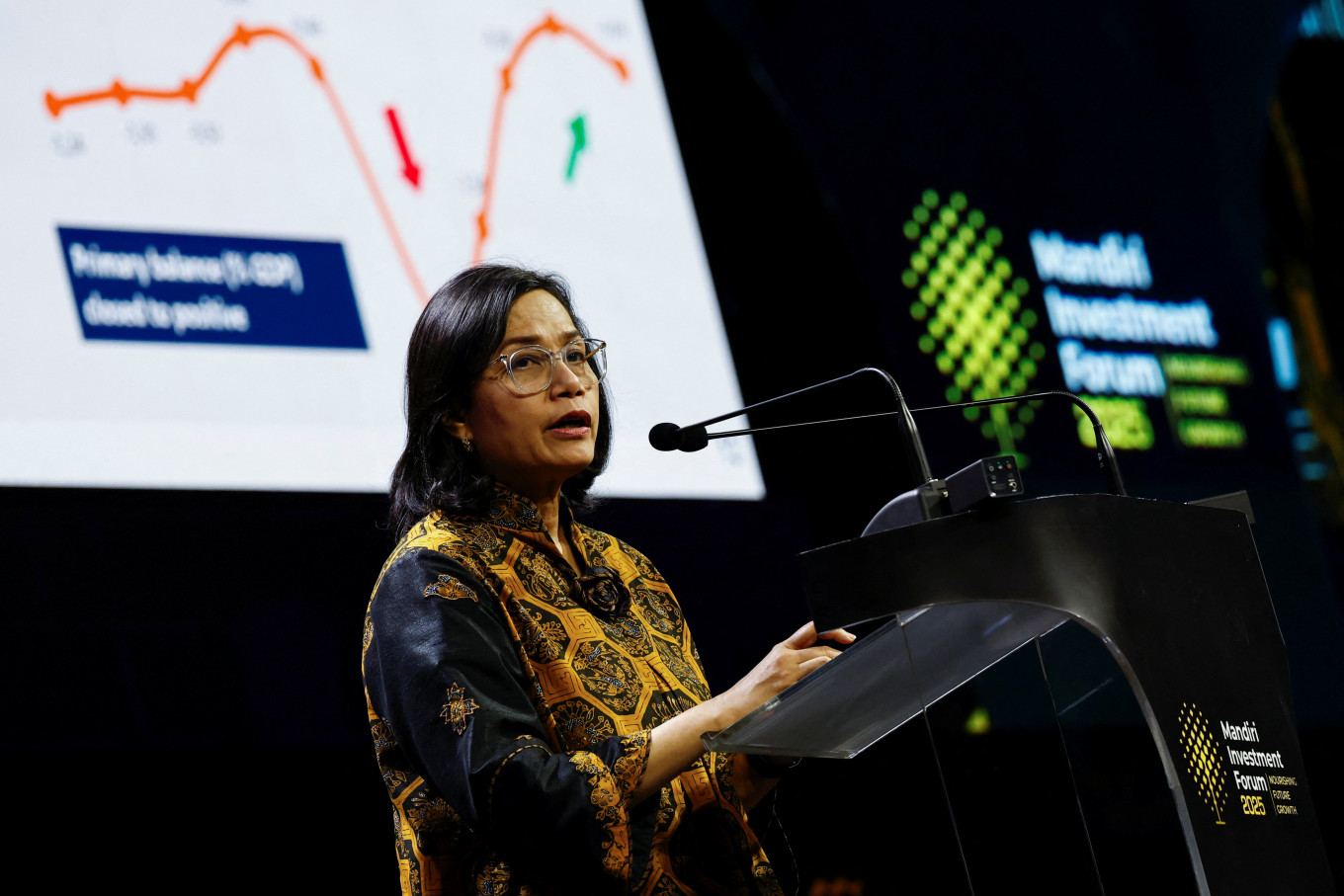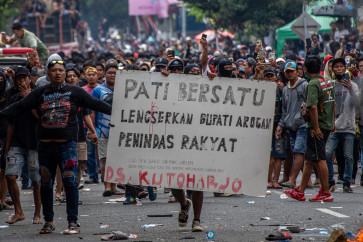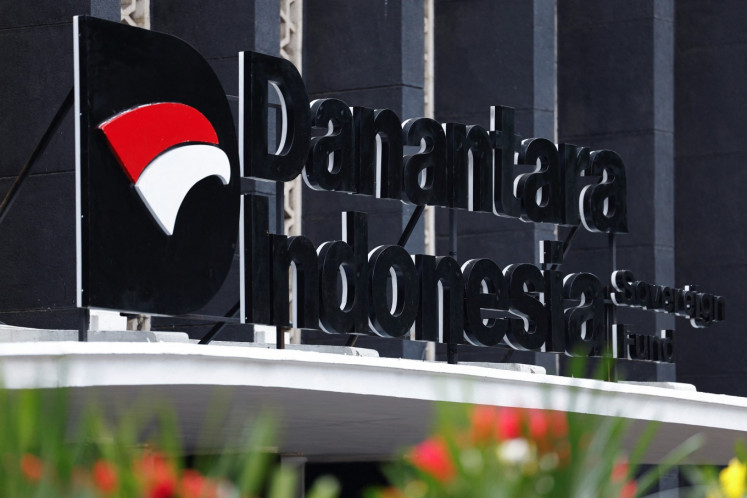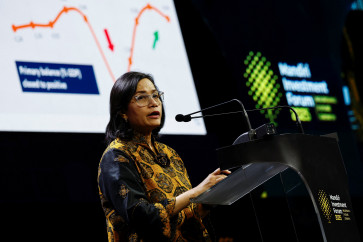Popular Reads
Top Results
Can't find what you're looking for?
View all search resultsPopular Reads
Top Results
Can't find what you're looking for?
View all search resultsWidening deficit spurs calls to curb major spending
The House Budget Commit has green-lit the Finance Ministry's recommended SAL drawdown to shore up shortfalls as a result of earlier-than-expected fiscal pressures due to stuttering disbursement for the government's big-ticket flagship programs.
Change text size
Gift Premium Articles
to Anyone
I
ndonesia’s fiscal deficit is projected to swell beyond the initial forecast for this year as weak tax receipts coincide with a surge in second-half spending and rising borrowing needs, which has prompted calls for the government to rein in its big-ticket plans to avoid piling on more debt.
The Finance Ministry now estimates a fiscal deficit of Rp 663 trillion (US$40.3 billion), or 2.78 percent of the country’s gross domestic product (GDP), up from 2.53 percent as originally forecast in the 2025 state budget plan.
Although the gap remains below the legal cap of 3 percent, some experts have warned that mounting pressure could challenge the state’s capacity to sustain President Prabowo Subianto’s expansive spending agenda without weakening the balance sheet.
Wen Chong Cheah, a researcher at the Economist Intelligence Unit (EIU), said fiscal pressures were surfacing “earlier than expected”, as the government had not fully disbursed funds for its flagship programs.
“The government must either scale down its programs and operations as it did earlier this year or introduce higher taxes,” Cheah told The Jakarta Post on Friday, noting that reprioritizing or phasing in major initiatives would be a more prudent approach.
Fitch Ratings has also flagged growing uncertainty in Indonesia’s fiscal outlook following the midyear state budget review, warning that weak revenues and rising social and infrastructure spending, such as the free nutritious meal and the village cooperative programs, could push deficits higher in the coming years and weigh on the country’s credit profile.
The ratings agency said the government’s measures to boost spending efficiency, including reallocating 1.3 percent of GDP in budget cuts to fund the free meals program, might struggle to deliver results due to implementation challenges, potentially leading to underspending.

















